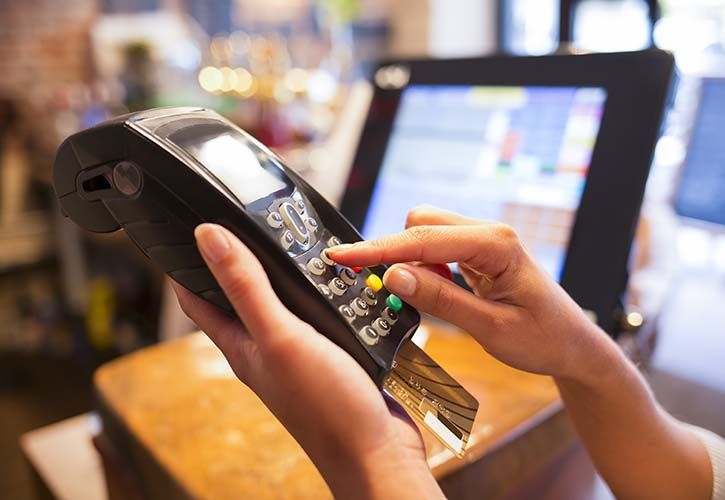UK DIY News
Barclaycard: Consumer Card Spending Grew 9.7% In January

- Spending on utilities grew 44.7 per cent – the highest rate of growth since Barclays began tracking this data in April 2022
- Supermarkets performed well, primarily due to inflation, as well as Brits opting to cook more from scratch and cut-down on takeaways
- Consumer confidence in household finances (63 per cent) reached its highest level since July 2022 as more Brits feel able to live within their means each month
- The Barclays report combines hundreds of millions of customer transactions with consumer research to provide an in-depth view of UK spending
Consumer card spending grew 9.7 per cent year-on-year in January – higher than in December (4.4 per cent) and slightly above the 9.2 per cent rise in consumer price inflation – as new year sales, blockbuster film releases and a surge in holiday bookings led to strong performances across retail, entertainment, and travel. However, growth rates were also increased by the Omicron Plan B restrictions in January 2022, which caused a drop in non-essential spending at the time, thereby inflating this year’s figures.
Data from Barclays, which sees nearly half of the nation’s credit and debit card transactions, reveals that spending on essential items increased 8.3 per cent – a sizeable uplift compared to December (5.1 per cent). Spend on fuel (9.3 per cent) was slightly less than last month (10.6 per cent), likely due to falling petrol and diesel prices.
Shopping at supermarkets (7.5 per cent) and food and drink specialist stores (3.4 per cent) saw slightly higher growth than in December (5.5 per cent and -0.2 per cent respectively), primarily due to rising food prices, and consumers committing to their New Year’s resolutions by cooking more from scratch instead of ordering fast food. One in four Brits (27 per cent) say they’re limiting the number of takeaways they order, which is one of the reasons why the takeaway category saw its lowest growth (9.0 per cent) since May 2022.
The rise in supermarket spending is even more significant in the context of last year’s Plan B restrictions; the category performed well while the social distancing restrictions were in place, which should have artificially dampened 2023’s figures – demonstrating the extent to which price increases are impacting grocery spend.
Looking at energy bills, the cold snap in January led to more Brits switching on or turning up their heating, with spending on utilities up 44.7 per cent – the highest rate of growth since Barclays began tracking this data in April 2022. This comes as two thirds (64 per cent) of consumers say they are finding ways to save energy at home, with radiators (52 per cent), lights (47 per cent), and ovens (46 per cent) topping the list of appliances that Brits are using less often in order to save money.
Spending on non-essential items grew 10.4 per cent year-on-year in January – the largest increase since May 2022. This was largely due to retail, hospitality and travel all seeing noticeable growth compared to the same period last year, when Plan B Omicron restrictions were in place.
As consumers flocked to cinemas to watch the latest blockbusters such as ‘Avatar: The Way of Water’, ‘Babylon’ and ‘Whitney Houston: I Wanna Dance with Somebody’, the entertainment sector saw a significant rise of 21.3 per cent – the largest increase since June 2022 and noticeably higher than December (9.2 per cent). Another reason is that cinemas struggled last year, as many either shut or had limited capacity due to the Plan B restrictions.
Pubs, bars & clubs also enjoyed a boost (18.1 per cent) – the category’s biggest uplift since May 2022 – while restaurants saw a noticeable improvement compared to December (up 4.7 per cent vs. a decline of -3.9 per cent). Aside from the impact of Plan B restrictions, this growth can also be attributed to the transport strikes in December, which caused many Christmas party bookings to be rescheduled for January.
Meanwhile, growth at clothing and department stores rose 3.6 per cent and 8.3 per cent respectively, compared to 1.5 per cent and 2.8 per cent in December. Pharmacy, health & beauty retailers also performed well, seeing their largest increase since April 2022 (10.2 per cent). These sectors all received a boost year-on-year as a result of the Plan B restrictions in 2022, which dampened demand for clothing, makeup and accessories as Brits opted to stay in rather than go out.
The travel sector saw a strong uplift (66.1 per cent) as holidaymakers booked getaways for the year ahead. Travel agents and airlines rose 83.1 per cent and 75.7 per cent respectively, compared to 87.3 per cent and 62.4 per cent in December. The domestic travel sector also benefited from a rise in staycation bookings, with hotels, resorts and accommodation enjoying faster growth than in December (12.2 per cent compared to 8.2 per cent). This growth is likely due to a combination of the impact of the restrictions in 2022, higher prices, and Brits spending more on holidays to make up for missed opportunities over the last few years.
Despite the cost-of-living squeeze, the majority of consumers say they are confident in their household finances and ability to live within their means each month (63 per cent and 70 per cent respectively) – with figures reaching their highest levels since July 2022. However, the percentage of Brits who say they are concerned about rising household bills is unchanged at 92 per cent.
Esme Harwood, Director at Barclays, said: “January saw a number of categories bounce back from last year’s Plan B restrictions thanks to Brits booking holidays, taking trips to the cinema, and snapping up bargains in the sales.
“However, while it’s encouraging that confidence in household finances saw a slight boost, it is clear that Brits will still need to find ways to manage their budgets over the coming months amid rising grocery price inflation and mounting utility bills.”
Silvia Ardagna, Head of European Economics Research at Barclays, said: “The recent rise in UK card spending is due in large part to inflation, base effects from last year’s Plan B restrictions, and probably some statistical effects resulting from the strikes.
“Looking ahead, we think that the UK economy is likely to contract in Q1, as demand drops in real terms due to the loss in household purchasing power, as well as rising energy and mortgage bills. However, the silver lining is that the labour market remains tight, with low unemployment and elevated wage growth.”
Source : Barclaycard
Image : shutterstock.com / 159873380
Thank you for the excellent presentation that you gave at Woodbury Park on Thursday morning. It was very interesting and thought-provoking for our Retail members. The feedback has been excellent.











































